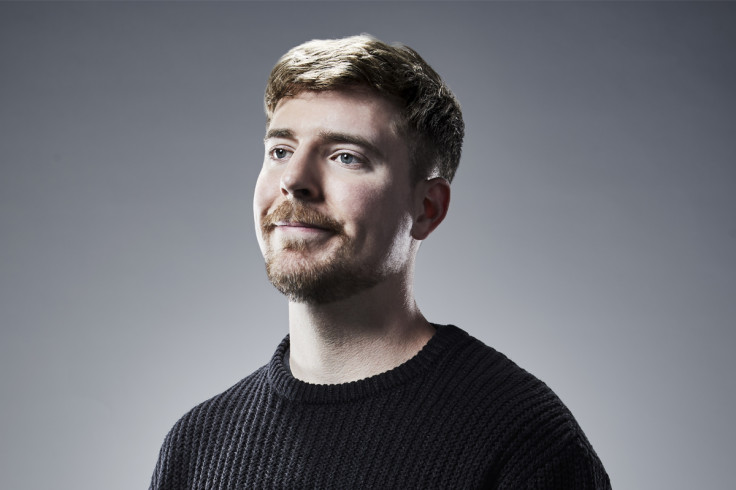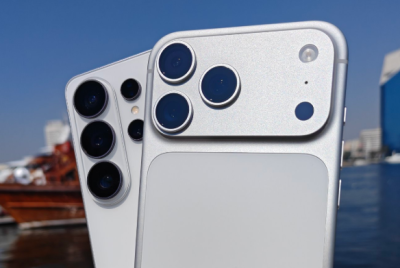'Scary for Creators': MrBeast Sounds Alarm Over AI Tools Like OpenAI's Sora

KEY POINTS
- In an X post, MrBeast asked what would happen 'when AI videos are just as good as normal videos,'
- His remarks come days after OpenAI launched Sora, which can create lifelike scenes from short prompts.
- Sora has faced scrutiny for its ability to replicate copyrighted material, raising questions about ownership and ethics in creative industries.
YouTube megastar MrBeast has joined the growing chorus of voices sounding the alarm over artificial intelligence, warning that generative AI could soon threaten the livelihoods of millions of digital creators.
The 26-year-old influencer, whose real name is Jimmy Donaldson, took to X (formerly Twitter) to share his unease about the new wave of AI video tools capable of producing hyper-realistic clips from simple text prompts.
'What happens when AI videos are just as good as normal videos?' he asked, calling the idea 'scary' for creators who depend on originality and human storytelling.
MrBeast's warning comes on the heels of OpenAI's debut of Sora, a groundbreaking text-to-video model that can generate complex, lifelike scenes in mere seconds.
While the innovation has been hailed as a leap forward in creativity and technology, it has also ignited fears that human-made content could soon be overshadowed by algorithmic artistry.
OpenAI's Sora Raises New Fears in the Creative Economy
Sora, released last week, has quickly become a lightning rod in debates over the future of creative professions.
The model's ability to reproduce copyrighted characters, mimic visual styles, and generate realistic performances has raised questions about intellectual property, ethics, and the economic survival of artists.
'AI tools that can create fully-formed videos from text have made rapid advances in recent years,' noted BBC in a technology article. For many, Sora represents the clearest example yet of how automation could encroach on fields once thought immune — including filmmaking, animation, and YouTube content creation.
Professor Lars Erik Holmquist, who teaches design and innovation at Nottingham Trent University, said that while the technology opens new creative possibilities, it also risks cheapening artistic labour. 'The general trend we're looking at with AI is that it makes creativity so much cheaper,' he explained. 'I think the people who win in the short term will be those who use it to create really good content.'
Why MrBeast's Warning Matters
MrBeast's intervention carries particular weight given his influence. With 444 million subscribers in Youtube alone, he is arguably the most successful content creator in the world — one whose every upload shapes trends on YouTube.
His videos, which often feature elaborate stunts, social experiments, or charitable giveaways, are built on authenticity and scale — qualities that AI struggles to replicate.
As Holmquist pointed out: 'His whole idea is to make people do uncomfortable or dangerous things for money — and if it wasn't real, nobody would watch it.'
Still, his willingness to pause his usual schedule of high-budget challenges to discuss AI's impact is telling. To many observers, it signals growing anxiety within the creator economy, where automation could soon disrupt the very business models that made influencers rich.
The Double-Edged Sword of AI for YouTubers
AI is not new to YouTube — and in many ways, it has become indispensable. Creators already use machine learning tools to generate subtitles, thumbnails, video ideas, and even script outlines.
Google itself offers Veo, an AI-powered video generator trained on a subset of YouTube content, though it remains unclear how much copyrighted material is included in its data set.
MrBeast has previously experimented with AI on his own platform. Earlier this year, he unveiled a thumbnail generatorintended to help smaller creators design clickable video covers. The tool, however, faced swift backlash from designers and artists who argued that generative AI often relies on scraped copyrighted images without permission or compensation.
After the criticism, MrBeast removed the feature and instead redirected users to human designers, saying he wanted to support artists rather than replace them. The move earned praise from parts of the creator community, who saw it as a rare example of accountability in an industry increasingly shaped by automation.
The Broader Industry Fallout
Across Hollywood and the gaming world, unions and studios continue to clash over AI's expanding footprint. Writers and actors have already held strikes over concerns that studios could use digital replicas of their likenesses without fair pay.
For creators like MrBeast, however, the concern is less about replacement and more about erosion — a slow dilution of what makes human creativity unique. While AI can't yet duplicate the spontaneity of a real-world MrBeast challenge, the rapid pace of innovation suggests that day may not be far off.
'In the short term, creators who embrace AI might benefit,' said Holmquist. 'But in the long run, the economics of online creativity could change dramatically.'
Looking Ahead
Whether tools like Sora and Veo become partners or predators in the creative space remains to be seen. But as MrBeast's warning underscores, the debate is no longer theoretical — it's happening in real time, on the same platforms that made digital creativity mainstream.
For now, the world's biggest YouTuber is urging his peers to stay alert. The machines may not be ready to film his next challenge yet, but they're learning — and fast.
© Copyright IBTimes 2025. All rights reserved.





















